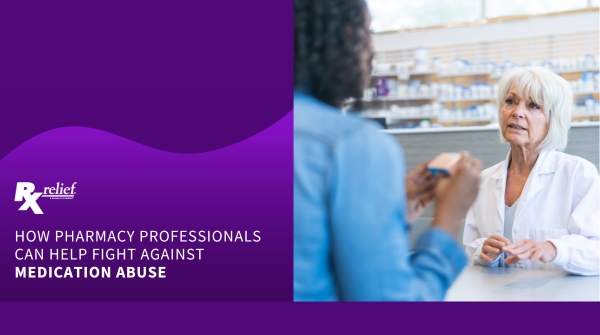How Pharmacy Professionals Can Help Fight Against Medication Abuse

Pharmacy professionals play an important role in the healthcare system, not only as dispensers of medications but also as advocates in the fight against medication abuse. Addressing this complex issue requires a varied approach, and pharmacy professionals can contribute significantly to combating medication abuse through various strategies:
Patient Education
Pharmacy professionals can educate patients about the risks of medication abuse, emphasizing the importance of following prescribed dosages and treatment plans. Providing clear information about potential side effects, interactions, and the dangers of self-medication fosters awareness and responsible medication use.
Promote Safe Disposal Practices
Pharmacy professionals can educate patients on proper medication disposal methods to prevent unused or expired medications from falling into the wrong hands. Many pharmacies have drug take-back programs or can guide patients on safe disposal practices at home.
Monitor Prescription Filling Patterns
Pharmacists should be vigilant in monitoring patients’ prescription filling patterns. Recognizing unusual or frequent requests for certain medications can lead to investigation or intervention to prevent potential misuse.
Prescription Drug Monitoring Programs (PDMPs)
Pharmacy professionals can participate in and promote the use of PDMPs, which allow healthcare providers to track and analyze controlled substance prescriptions. Accessing this information helps identify potential cases of abuse and facilitates informed decision-making when prescribing medications.
Collaborative Care
Establishing effective communication channels between healthcare providers, including physicians and pharmacists, enhances the exchange of critical information about patients and their medication histories. This collaborative approach reduces the likelihood of medication abuse.
Offer Alternative Pain Management Solutions
In cases where pain management is a concern, pharmacy professionals can work with healthcare providers to explore non-opioid alternatives and pain management strategies. This approach minimizes the reliance on potentially addictive medications.
Provide Counseling Services
Pharmacy professionals can offer counseling services to patients, particularly those with a history of substance abuse or those prescribed medications with a potential for abuse. Open discussions about the risks and benefits of medications can empower patients to make informed choices.
Monitor High-Risk Medications
Paying special attention to medications with a high potential for abuse, such as opioids and benzodiazepines, allows pharmacy professionals to exercise additional caution in dispensing and monitoring these drugs.
Continuing Education for Healthcare Providers
Promote continuing education programs for healthcare providers to ensure that they stay informed about the latest guidelines, trends, and interventions related to medication abuse prevention.
Advocate for Policy Changes
Pharmacy professionals can engage in advocacy efforts to support policies that address medication abuse, including legislation promoting safe prescribing practices, enhanced monitoring, and increased access to addiction treatment.
If you are a pharmacist looking for your first job or a new career challenge, join one of the nation’s leading pharmacist placement firms.
Voted Best of Staffing by both clients and talent, Rx relief is a specialty staffing company providing supplemental pharmacy professionals for all pharmacy practice settings. As a member of our team, you’ll enjoy a customized approach to your career needs as well as comprehensive benefits! Join our dynamic team, apply today!



